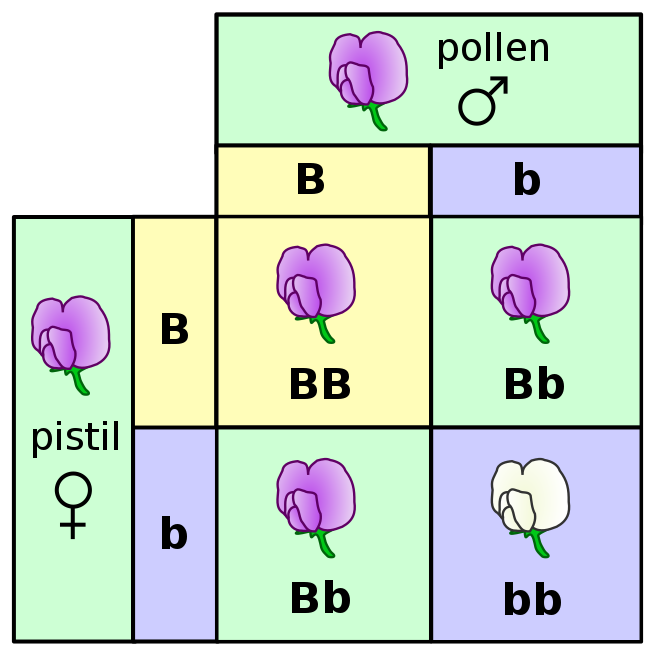Main Difference
The main difference between Genotype and Phenotype is that the Genotype is a classification system used to categorize organisms based on their genetic characteristics; organism’s full hereditary information, part (DNA sequence) of the genetic makeup of a cell, one of three factors that determine phenotype and Phenotype is a classification system used to categorize organisms based on their appearance.
-
Genotype
The genotype is the part of the genetic makeup of a cell, and therefore of any individual, which determines one of its characteristics (phenotype). The term was coined by the Danish botanist, plant physiologist and geneticist Wilhelm Johannsen in 1903.Genotype is one of three factors that determine phenotype, along with inherited epigenetic factors and non-inherited environmental factors. Not all organisms with the same genotype look or act the same way because appearance and behavior are modified by environmental and growing conditions. Likewise, not all organisms that look alike necessarily have the same genotype.
One’s genotype differs subtly from one’s genomic sequence, because it refers to how an individual differs or is specialized within a group of individuals or a species. So, typically, one refers to an individual’s genotype with regard to a particular gene of interest and the combination of alleles the individual carries (see homozygous, heterozygous). Genotypes are often denoted with letters, for example Bb, where B stands for one allele and b for another.
Somatic mutations which are acquired rather than inherited, such as those in cancers, are not part of the individual’s genotype. Hence, scientists and physicians sometimes talk about the genotype of a particular cancer, that is, of the disease as distinct from the diseased.
An example of a characteristic determined by a genotype is the petal color in a pea plant. The collection of all genetic possibilities for a single trait are called alleles; two alleles for petal color are purple and white.
-
Phenotype
A phenotype (from Greek, Modern phainein, meaning ‘to show’, and typos, meaning ‘type’) is the composite of an organism’s observable characteristics or traits, such as its morphology, development, biochemical or physiological properties, behavior, and products of behavior (such as a bird’s nest). A phenotype results from the expression of an organism’s genetic code, its genotype, as well as the influence of environmental factors and the interactions between the two. When two or more clearly different phenotypes exist in the same population of a species, the species is called polymorphic. A well-documented polymorphism is Labrador Retriever coloring; while the coat color depends on many genes, it is clearly seen in the environment as yellow, black and brown.
This genotype-phenotype distinction was proposed by Wilhelm Johannsen in 1911 to make clear the difference between an organism’s heredity and what that heredity produces. The distinction is similar to that proposed by August Weismann, who distinguished between germ plasm (heredity) and somatic cells (the body). The genotype-phenotype distinction should not be confused with Francis Crick’s central dogma of molecular biology, which is a statement about the directionality of molecular sequential information flowing from DNA to protein, and not the reverse.
Richard Dawkins in 1978 and then again in his 1982 book The Extended Phenotype suggested that bird nests and other built structures such as caddis fly larvae cases and beaver dams can be considered as “extended phenotypes”.
-
Genotype (noun)
The part (DNA sequence) of the genetic makeup of an organism which determines a specific characteristic (phenotype) of that organism.
-
Genotype (noun)
A group of organisms having the same genetic constitution.
-
Genotype (noun)
The type species of a genus; generitype.
-
Genotype (verb)
To determine the genotype of.
-
Phenotype (noun)
The appearance of an organism based on a multifactorial combination of genetic traits and environmental factors, especially used in pedigrees.
-
Phenotype (noun)
Any observable characteristic of an organism, such as its morphological, developmental, biochemical or physiological properties, or its behavior.
-
Phenotype (verb)
To evaluate or classify based on phenotype

